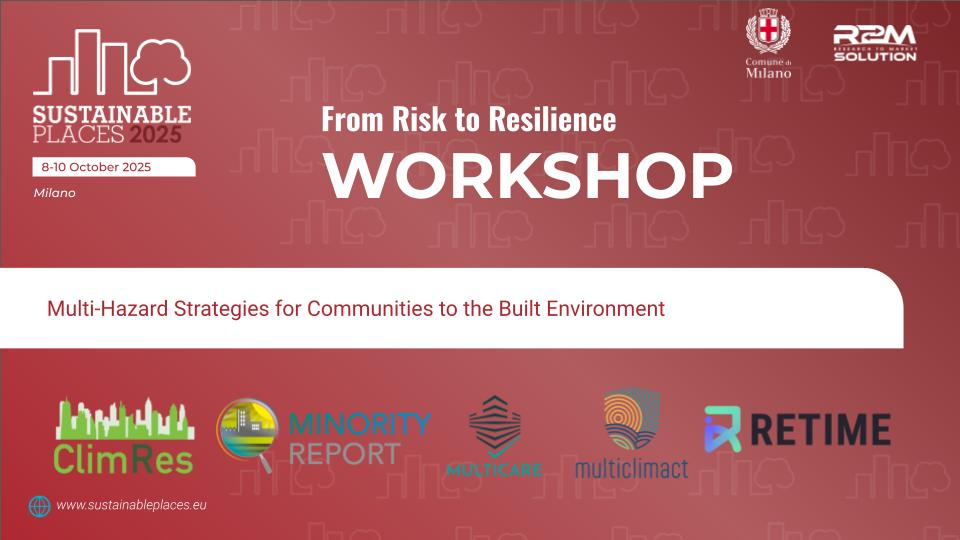From risk to resilience: Multi-hazard strategies for communities to the built environment

Communities and built environments are increasingly exposed to compound and cascading hazards, from floods and earthquakes to heatwaves and wildfires. Traditional risk management approaches lack robust and prescient solutions to deal with the increasing risk. Instead, there is a need for integrated resilience strategies that combine technical, social, and policy innovations to safeguard people, buildings, and cities.
This workshop aims to showcase and connect leading Horizon Europe projects that are pioneering multi-hazard resilience solutions. By creating a platform for exchange and co-design, the session will support knowledge transfer, identify complementarities between approaches, and build actionable pathways to strengthen resilience in the built environment. The workshop convenes five projects working at the intersection of technology, design, and social innovation:
- MULTICLIMACT develops a toolkit of 18 design methods, materials, and digital solutions to strengthen resilience across buildings, neighbourhoods, and territories.
- CLIMRES pilots climate resilient buildings in Southern Europe, producing a replication roadmap, capacity building programmes, and guidance for stakeholders.
- MULTICARE provides low-carbon, plug-and play technologies and digital tools for multi-hazard retrofit scenarios, coupled with multi-criteria decision frameworks.
- Minority Report builds a people-centric resilience platform integrating BIM, digital twins, AI driven weather modelling, and co creation with vulnerable communities.
- RETIME addresses real time urban adaptation needs through hazard alert systems, digital building twins, renovation passports, and a resilience knowledge hub.
The workshop will combine short project pitches with participatory activities, including multi-hazard mapping, asset identification, and co-design of “resilience action pathways.”
Innovative Results:
The session will highlight novel tools and frameworks for resilience, from predictive AI driven modelling and digital twins to life-cycle decision frameworks and community co-creation methodologies.
Expected outcomes include:
- A shared multi-hazard asset map connecting innovations across projects.
- A hazard–solution matrix aligning resilience measures with specific risks.
By uniting technological, social, and systemic approaches, this workshop will advance integrated resilience strategies and foster collaboration across research, policy, and practice, contributing to safer, adaptive, and sustainable European places.
